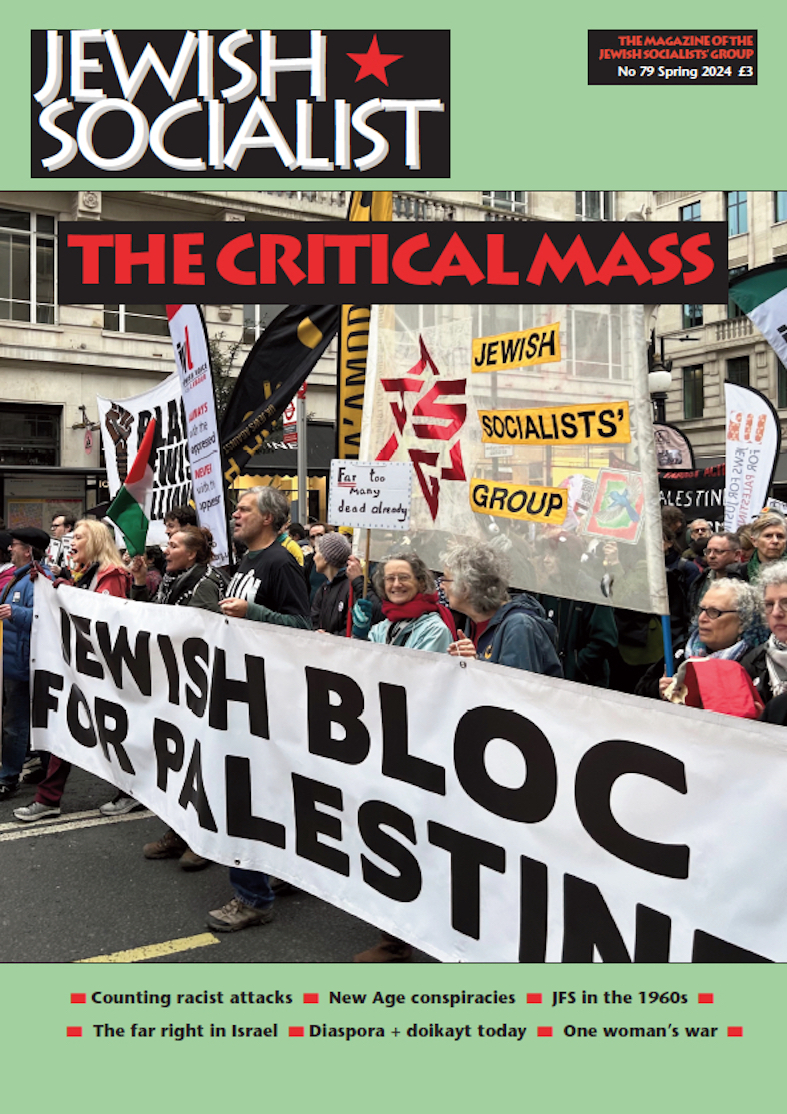A bitter-sweet anniversary
Jewish Socialists’ Group statement 75 years after the arrival in Britain of the Empire Windrush

Seventy five years ago the Empire Windrush arrived at Tilbury, near London, from the Caribbean. The boat was full of people excited to be coming to the “mother country” to work, rebuilding Britain after the Second World War. They came full of anticipation, expecting a warm welcome. But many were given the cold shoulder – not just by the climate but in the form of hostility from many British people, who denied them homes as tenants or abused them as neighbours.
While we celebrate the diversity introduced by the arrival of people on the Empire Windrush, we cannot forget the racism they met. This contradiction was most starkly expressed in workplace segregation. Institutional racism confined many to low-paid work. In the early 1960s Black people were banned from working on the buses in Bristol. A boycott of the buses forced the company to reverse its policy. Racism and anti-racism on display.
The clue to this contradiction lies in the ship’s name – Empire. The Empire was by definition nationalistic and rooted in notions of white supremacy. It was super-exploitative and fostered divide and rule and often war around the globe.
The boat’s history itself offers an unexpected connection. Built in Germany in 1930, it was used by the Nazis first as a troop ship and later to deport Jews from Norway on the first part of their journey to Auschwitz. Later captured by the British, it was refitted and renamed post-war to transport people from the Caribbean to work in the UK.
Most of the people who came at that time planned to work in Britain for a few years before returning to the Caribbean more economically secure. Some did, but most stayed despite the racism and hostility. That was partly because low exploitative wages meant they could not earn enough to return for a better life.
But the Windrush’s arrival cast a long shadow into the future. The community, unknowingly, was sitting on a legal timebomb. Many did not know that they had to legalise the citizenship and residency status of their children. Decades later people were asked for passports and other documents they did not possess in order to get a job, medical treatment and benefits. A huge and painful struggle was fought in the courts and on the streets before the Government changed the law.
But this was no accident. The Labour Government of the 1940s and the Tories in the early 1960s developed laws and processes that permitted the entry of much-needed labour to rebuild the country and fill low-paid jobs but would discourage those workers from settling long-term. When we talk of the “Windrush Generation” now, it is bitter-sweet. It speaks to the racism and the laws that criminalised a generation, many of whom had never seen the land of their parents. But it also speaks to the unity and diversity evolving in Britain and the huge cultural impact migrants have made.
The idea of a Hostile Environment is not new. Jews experienced this at the turn of the 20th century and for many decades after. The Hostile Environment, proudly proclaimed by Theresa May in 2012, has been the experience for many Commonwealth migrants since Windrush through to today’s asylum seekers and refugees.
But a powerful resistance has been growing. Trade Unions that had previously been ambivalent, even hostile to migrants, are today saying to the Home Office: “Defiance Not Compliance”. People have put their bodies on the line to stop deportations, like the Brook House 3, arrested for blocking deportations to Jamaica and recently acquitted.
We in the Jewish Socialists’ Group stand in unity and solidarity with those who came on the Windrush 75 years ago, and in the years that followed. As we reflect, too, on the role of this boat in the horrors of the Holocaust before it became the Empire Windrush, we strengthen our resolve to fight racism and fascism in all its guises, and encourage all, across and beyond our diverse Jewish community to do so too. We mourn those who have died in the Mediterranean in boats unfit to make the journey. Borders themselves are an international hostile environment forcing many to their deaths.
Posted: 21 June 2023
Events
- JOIN THE JEWISH BLOC ON THE GAZA PROTEST
27 April 2024, London
March with the Jewish Bloc for Palestine at this week's national demonstration for Gaza.
Jewish Socialist magazine
JS79 out now:
Counting racist attacks
New Age conspiracies
The far right in Israel
Diaspora + doikayt today

